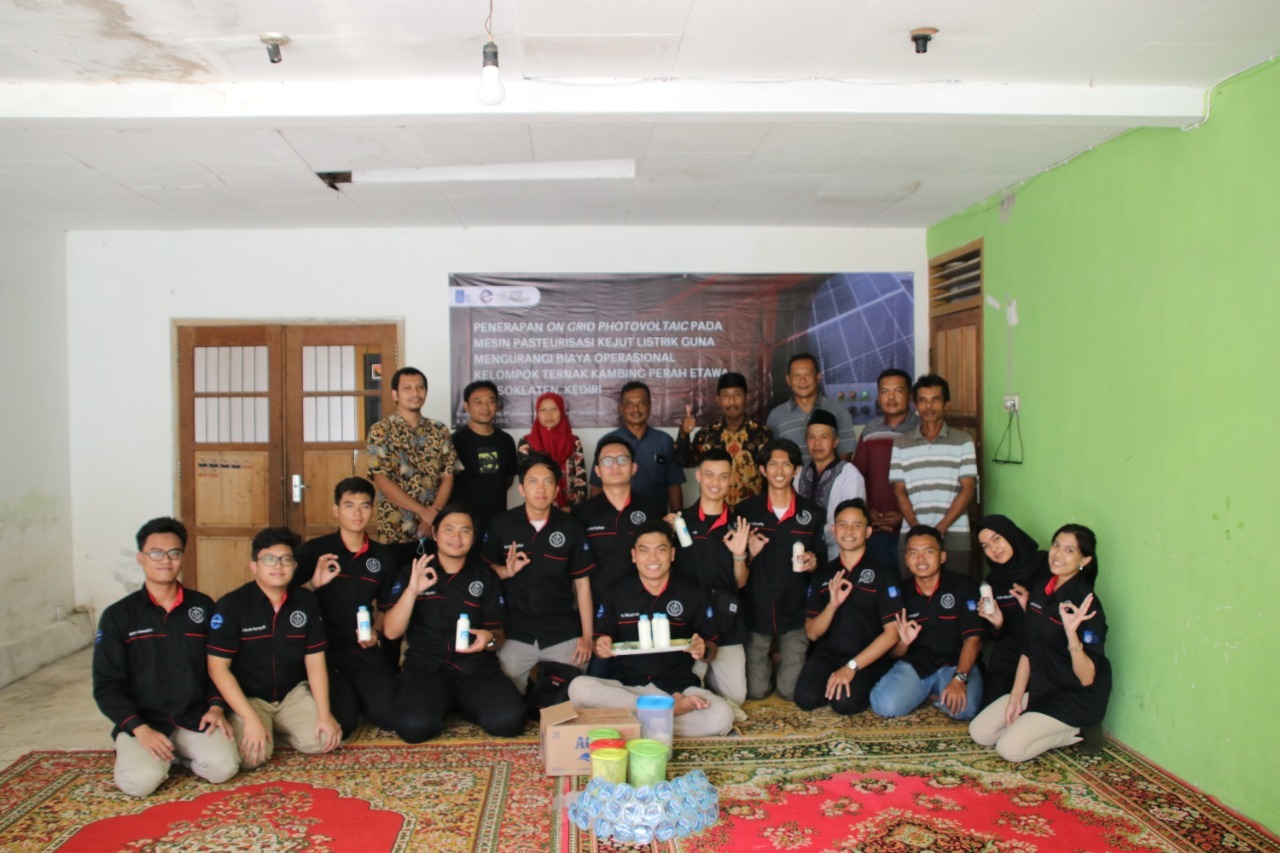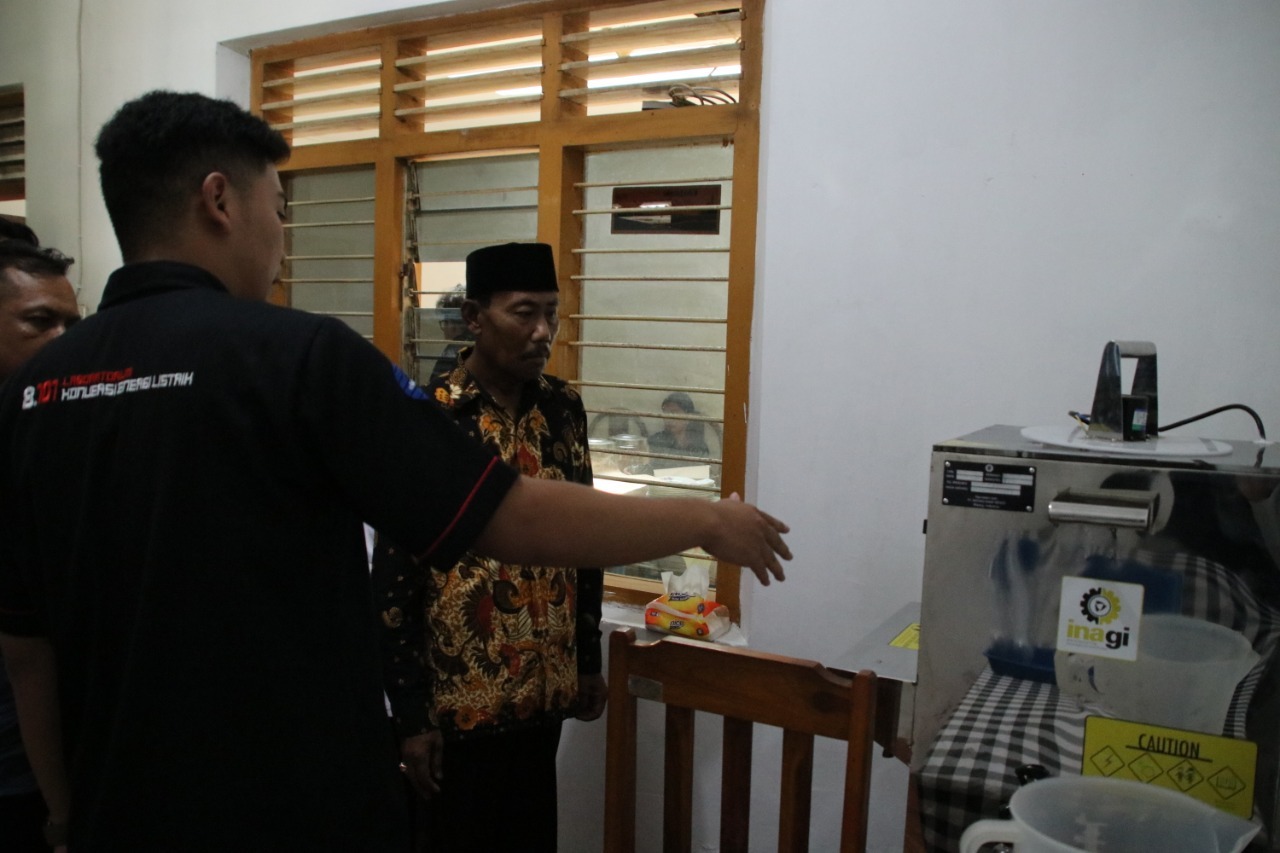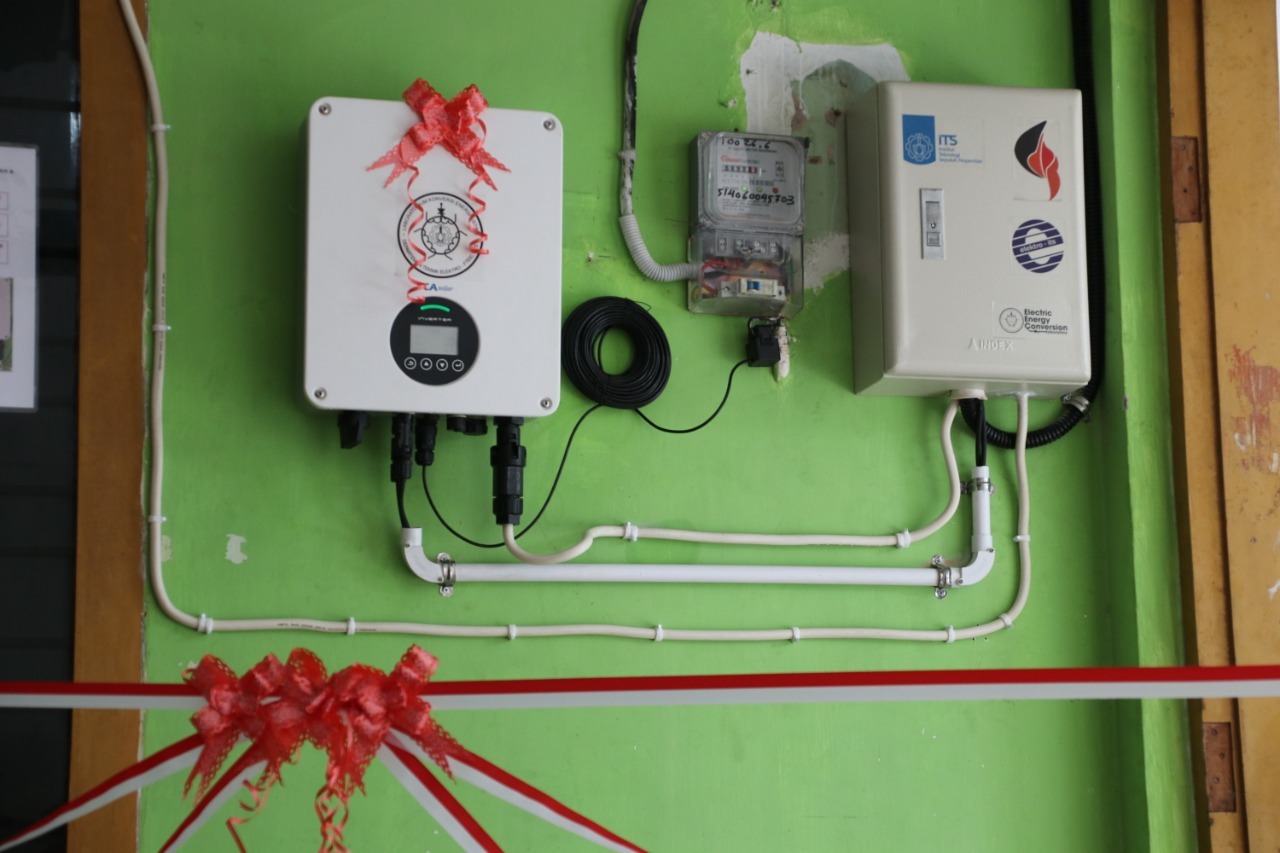ITS Community Services Innovates Pasteurization Machines for Efficiency Milk Processing

The ITS Abmas team together with officials from Sumberagung Village, Kediri Regency on the day of the inauguration of an innovative pasteurization machine for milk processing
ITS Campus, ITS News – Institut Teknologi Sepuluh November (ITS), through Community Services (Abmas) activities, seeks to contribute technology by creating electric shock pasteurization machines for farmers. This tool is equipped with an automatic stirrer system, electric shock, and an induction cooker from a solar panel or solar panel.
The Chief Executive of Abmas Tri Winarno said that the activity carried out in Sumberagung Village, Kediri Regency, was to assist farmers in processing goat’s milk. Previously, farmers still used the conventional method; milk was cooked using a gas stove and stirred until the temperature reached 70 degrees Celsius. “Usually, they stir 10 liters of milk for 15 to 20 minutes to reach the ideal temperature,” he said.
Therefore, Tri and the Abmas team from the Energy Conversion Laboratory of the ITS Electrical Engineering Department designed an electric shock-based pasteurization machine to assist farmers in processing milk. “In the future, the farmers in Sumberagung Village will not need to exhaust their energy to stir the milk because the machine already has an automatic stirrer system,” he explained.

The ITS Abmas team when explaining the Standard Operational Procedure (SOP) for the use of an innovative pasteurization machine created for milk processing
In addition, Tri added that the machine also has several other advantages. With an electric shock system, milk must only be heated to 40-50 degrees Celsius. This is done so that the nutrients in the milk do not decrease, the color does not turn yellow, and it maintains the taste of the milk. “Because 55 degrees Celsius has not completely killed the bad bacteria, electric shocks are used to kill the bad bacteria that are still contained in the milk,” he explained.
The next advantage, added Tri, is that the machine’s capacity to process milk is even more significant, which is 15 liters. In addition, the pasteurization machine has also implemented an on-grid system, which combines a PLN electricity source and solar panels. “The solar panel system is used so that farmers don’t have to think about the electricity cost of using a pasteurization machine,” said the student from the Electrical Engineering Department.

The on-grid system, which is a combination of a power source from PLN and solar panels for the operation of the milk processing pasteurization machine by the Abmas ITS Team
Tri said that this machine was made through several stages. At the initial stage, the device is designed and measured according to the photovoltaic needs and the inverter capacity so that its use is efficient and on target. After that, the machine went through various trials in the laboratory until the device could function properly. “Installation of the pasteurization machine in Sumberagung Village was carried out for two days,” he added.
On August 14, the day of the inauguration, the Abmas team simulated the use of machines and provided farmers with a Standard Operational Procedure (SOP) and procedures for maintaining devices. “The team hopes that the pasteurization machine can help reduce operational costs while saving farmers’ labor to process milk,” he said. (ITS Public Relation)
Reporter: Thariq Agfi Hermawan
Related News
-
ITS Collaboration with BPBD East Java, Launching VR Disaster Simulation
ITS Campus, ITS News — Supporting anticipation of disasters and continuing to educate the public, Institut Teknologi Sepuluh Nopember
September 08, 2022 21:09 -
Supporting the Implementation of Innovative Ideas, ITS and IYSA Hold International Competition
ITS Campus, ITS News — Institut Teknologi Sepuluh Nopember (ITS) has once again proven its commitment to supporting the
September 08, 2022 21:09 -
ITS Maintains Informative Qualification for Five Consecutive Years at KIP Awards
ITS Campus, ITS News — Institut Teknologi Sepuluh Nopember (ITS) has once again successfully maintained its Informative Qualification predicate
September 08, 2022 21:09 -
ITS Strengthens Smart Eco-Campus through UI GreenMetric 2024
ITS Campus, ITS News — Institut Teknologi Sepuluh Nopember (ITS) has once again demonstrated its commitment to environmental concern
September 08, 2022 21:09
